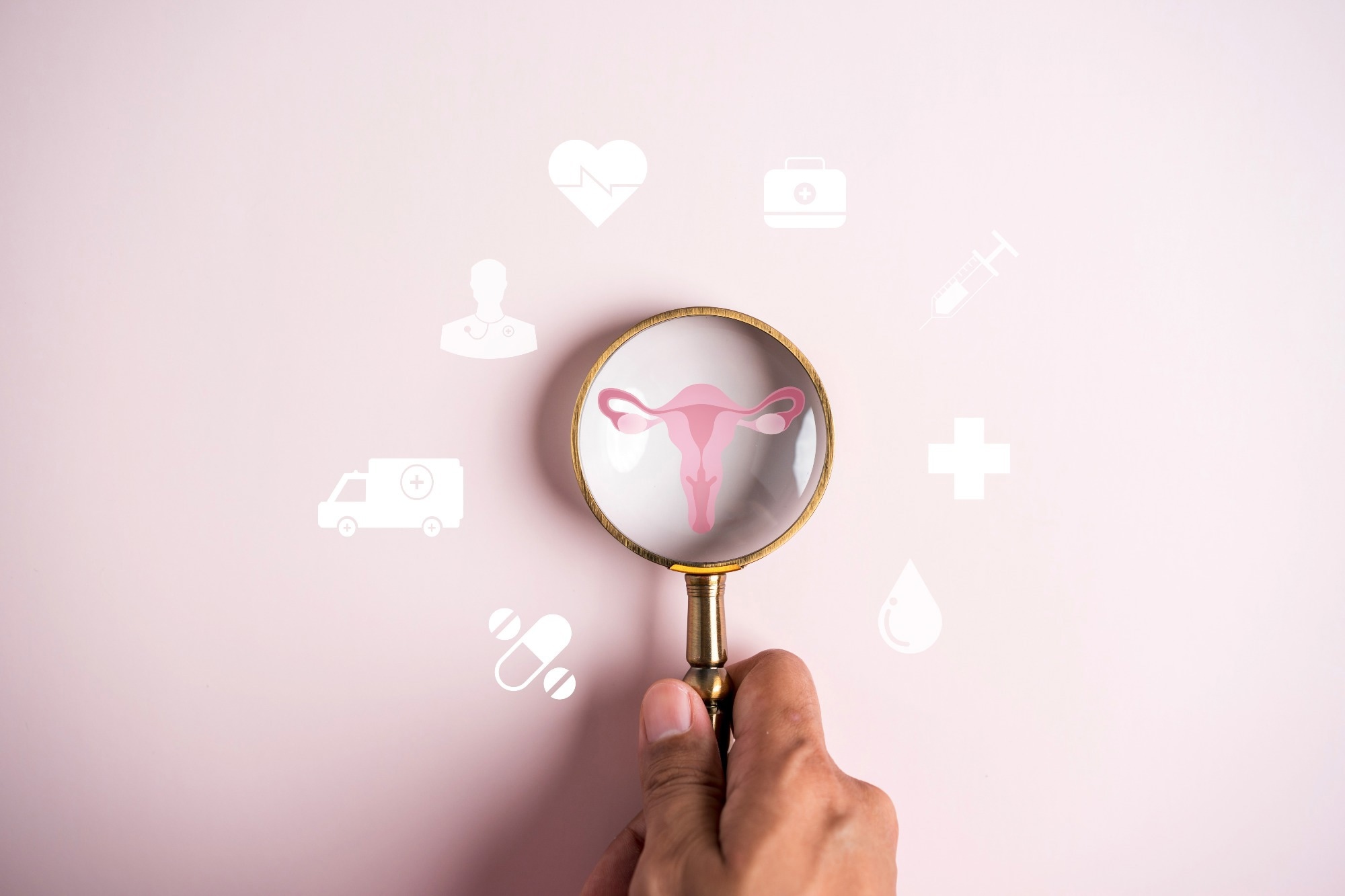Irregular menstrual periods
Fertility problems
Hair and skin
Weight gain and PCOS belly
Fatigue
Complications
The symptoms of polycystic ovary syndrome (PCOS) usually present in the late teenage years or early adulthood. As the symptoms can range from mild to severe, not all women with the condition notice the symptoms enough to seek medical aid.
The symptoms usually begin shortly after menarche, the first menstrual period of the woman, although in some cases they may not become evident until later in the reproductive years. Substantial weight gain and obesity can worsen symptoms, which often prompts symptoms and diagnosis at an older age.
 Image Credit: MMD Creative/Shutterstock.com
Image Credit: MMD Creative/Shutterstock.com
Irregular menstrual periods
Irregular or absent menstrual periods is the most common characteristic of PCOS. The irregularity of the periods depends on the severity of the condition.
Affected women may have menstrual cycles longer than 35 days or less than eight cycles per year. Additionally, failure to menstruate for more than three months or particularly long and heavy periods may be indicative of PCOS.
Some women also experience significant pelvic pain, which may present with periods or at other times of the cycle when the woman is not bleeding.
Fertility problems
Irregular ovulation or failure to ovulate is a significant symptom associated with PCOS, which can lead to problems of fertility. In fact, PCOS is one of the most common causes of infertility among females, and it is often diagnosed when women seek advice due to difficulty conceiving.
Hair and skin
Excessive growth of hair on the face, chest, back, or buttocks, known as hirsutism, is common in women who have PCOS.
This is caused by altered levels of androgen hormones in the body and can also have an effect on the skin, which may become oily with moderate to severe acne. Additionally, some affected women may notice hair loss or thinning of hair on their head, similar to male-pattern baldness.
Weight gain and PCOS belly
Approximately half of all women affected by PCOS struggle to maintain a healthy weight and are obese. Additionally, gaining weight is associated with worsening of other PCOS symptoms.
A common feature of PCOS-related weight gain is the "PCOS belly," characterized by an accumulation of visceral fat around the abdomen. Unlike subcutaneous fat, which is stored just beneath the skin, visceral fat surrounds internal organs and is linked to insulin resistance, a key factor in PCOS. This type of weight distribution is often referred to as an "apple-shaped" body and can increase the risk of metabolic conditions such as type 2 diabetes and heart disease.
Women with PCOS may find it particularly challenging to lose weight due to hormonal imbalances that affect metabolism, appetite regulation, and fat storage. Managing insulin resistance through diet, exercise, and medical interventions can help reduce PCOS belly and improve overall health outcomes.
Fatigue
Many women with PCOS report feeling excessively tired and have low energy throughout the day. However, this may be associated with poor sleep quality in these women, as women with PCOS are more likely to be affected by insomnia and other sleep disorders.
Complications
In addition to the immediate symptoms associated with PCOS, there are several complications that are more likely to present later in life. Women with PCOS are more likely than other women to develop:
However, the risk of these complications can be greatly reduced with the appropriate interventions. For example, a healthy diet and regular exercise are protective against diabetes and cardiovascular conditions. Additionally, using the contraceptive pill or an intrauterine system for women with absent or irregular periods can reduce the risk of endometrial cancer.
References
Further Reading
Last Updated: Jan 29, 2025